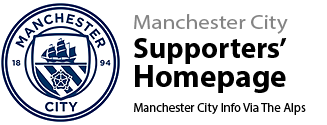Cracking the Code: How Manchester City F.C. managed to break into the Premier League Elite
Chapter 8: Protection
Long term sponsorship deals
Clubs protect their income by signing long-term commercial sponsorships. Manchester City’s GBP 45 million per year deal with Etihad Airways was signed as a 10-year deal back in 2011.
Likewise, Manchester United has a 10-year GBP 74 million per year deal with Adidas which also has a 30% reduction clause if Manchester United fail to qualify for Champions League two years in a row (Wright, 2019).
Building a strong brand and loyalty schemes
Clubs at the top-6 can build barriers by developing a strong brand and increase their fan-base. But, a club’s fan-base do not change overnight, and football supporters are known to be extremely loyal.
Leicester City won the Premier League in 2016 and by 2021 the Scandinavian Branch of the Supporters Club had only increased to 151 members. Manchester United in comparison can count 39,062 members to their Scandinavian Branch (Supporterunionen, 2021).
One way to build a larger fan-base is to provide a quality product over time, as Manchester City has done by devoting themselves to play attractive attacking football scoring a lot of goals. This enables them to recruit from the youngest fan-base who have yet to decide which team they support. This is an important investment for the future and something that will only start to show results after 15-20 years.
Youth policy and Football Academy
In 1998 Manchester City revamped their Football Academy and since they have developed many prolific professional football players like Jadon Sancho and Phil Foden.
A well-run Academy can be a source to secure the best available talent and nurture them into players fit for your team. A player coming through the club’s own ranks saves a lot of money, while those who can be sold for a fee also generates important revenue. Over a 5-year period Manchester City have made GBP 153 million by selling Academy players (Blackburn, 2019)
International collaboration
Through the City Football Group Limited, Manchester City have created a global footballing franchise with a network of clubs in different leagues supporting each other with scouting players, internal player movement, supporting staff, and sharing part of the commercial income.
These clubs work in alliance and do not compete for resources, but instead they can support each other when necessary. As of June 2021, the group consist of clubs in 10 different leagues worldwide, with Manchester City as the leading brand (CFG, 2021).




